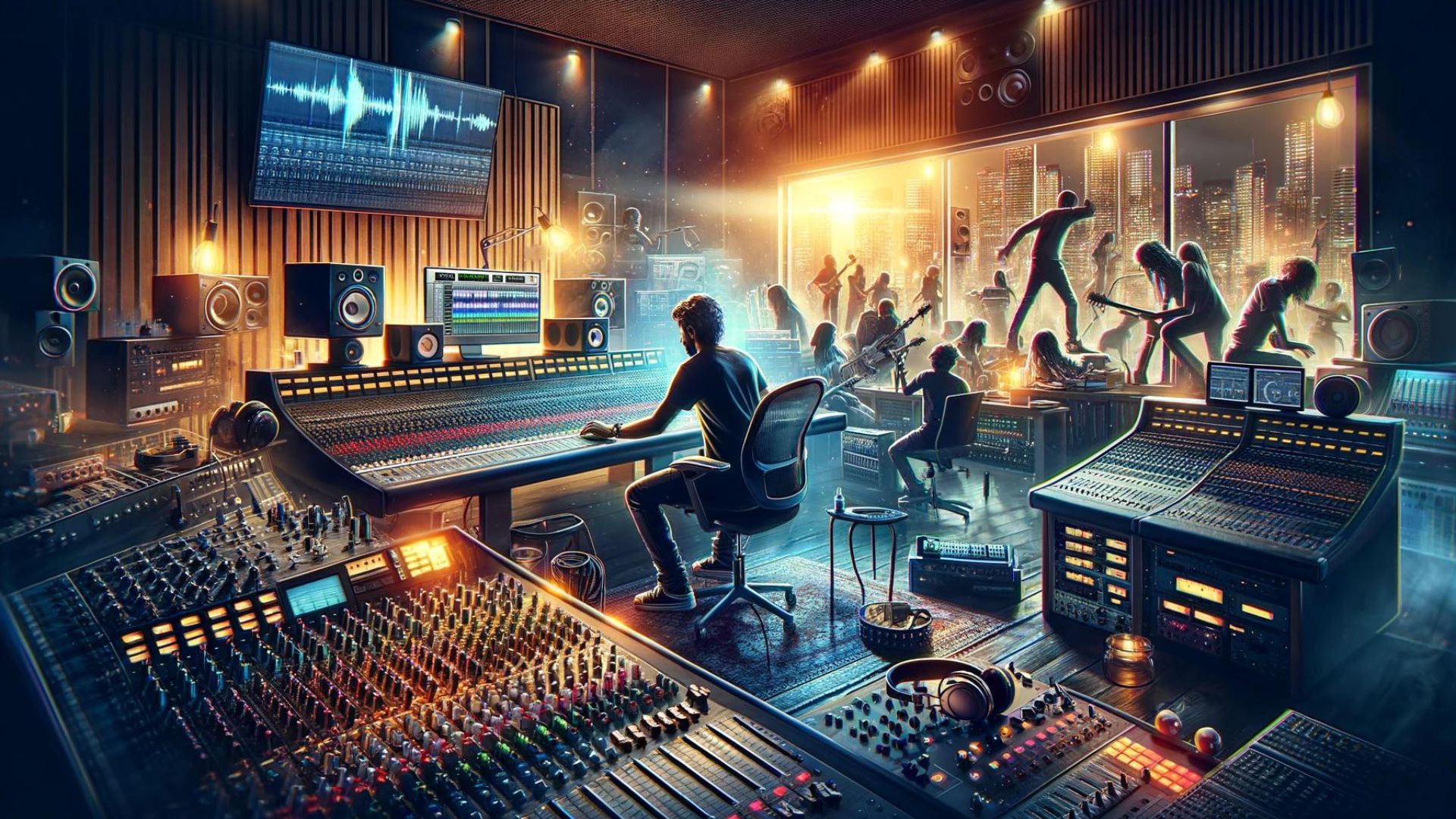The music industry isn’t just about the singers you see on stage or the songs you hear on the radio. There’s a whole world of creative professionals behind the scenes, tirelessly crafting those perfect beats and melodies. One of the most important roles in this intricate process is that of the music producer.
If you have a passion for music, a knack for sound design, and a drive to collaborate, becoming a music producer could be your dream career. But what does the life of a music producer actually look like? Let’s delve into a typical day and see what it takes to break into this competitive industry.
Morning: Creative Grind
Many music producers prefer to start their day early when inspiration is fresh. This might involve experimenting with new sounds, laying down drum patterns, or working on song arrangements. Early mornings often provide a quiet, distraction-free environment to find your creative flow and bring your ideas to life. Think of this as a painter putting brush to canvas to start shaping their masterpiece.
Midday: Collaboration & Communication
As the day progresses, collaboration becomes key. A music producer might have sessions with a vocalist, instrumentalist, or another producer. It’s all about exchanging ideas, offering feedback, and refining the track together. Imagine this like a band jamming out, trying different chords or vocal melodies until they find that magical combination that ignites the song.
A big part of a producer’s job also involves communicating via email or phone calls. You might be booking studio time, discussing project details with clients, or networking with other industry professionals.
Afternoon: Mixing and Editing
Once the main elements of a song are recorded, it’s time to put on the audio engineer’s hat. This involves the meticulous process of mixing – adjusting volumes, equalizing frequencies, and adding effects to create a balanced and polished sound. It’s similar to a film editor piecing together different scenes to create a cohesive story.
The afternoon also tends to involve a fair amount of editing: correcting timing, cleaning up vocals, and making those all-important tweaks to create that professional sheen.
Evening: Learning and Networking
In the world of music production, staying ahead of the curve is essential as technology changes. Whether it’s watching online tutorials, exploring new music software, or attending industry events, a successful producer never stops learning. Networking at shows and gatherings can help you gain exposure and meet potential collaborators and clients. These experiences are just as important as your studio time.
The Not-So-Glamorous Side
While a music producer’s life might seem exciting, it’s important to remember that it’s not always glamorous. Expect to deal with tight deadlines, demanding clients, and occasional creative burnout. Be prepared to hustle and wear many hats – you’ll be part musician, part tech wizard, and part entrepreneur.
Action Point
Now, you have a glimpse into the dynamic world of a music producer. Don’t just keep reading about it – it’s time to take action. Explore free music production software online, connect with other aspiring musicians in your area, and most importantly start creating! With hard work, dedication, and a love for music, you’ll be carving your own path in the music industry in no time.
Why Should You Care?
- Understanding the Industry: Learning about the role of a music producer gives you valuable insight into how the music you love is created. This knowledge deepens your appreciation for the artistry and technical skill involved.
- Exploring Career Paths: If you’re musically inclined and fascinated by technology, becoming a music producer could be your dream job. This article sheds light on what that career path actually entails.
- Supporting Emerging Artists: Understanding the challenges and daily hustle of music producers helps you become a more informed consumer and better support rising talent.
Key Takeaways
- Music Production is Multifaceted: Producers wear many hats – musician, engineer, collaborator, and project manager.
- Success Requires Hustle: Breaking into the music industry takes dedication, networking, and continuous learning.
- Technical Skills and Creativity Coexist: You need a keen ear for sound design and the technological know-how to execute your vision.
- Collaboration is Crucial: The best music often emerges from working together with other talented individuals.
Keywords
- Music Producer: The person overseeing the entire recording process, from crafting the sonic direction to the final mix and mastering.
- Beats: The rhythmic foundation of a song, usually built with drums, percussion, and synthesized elements.
- Melodies: A sequence of notes creating a memorable musical phrase; found in vocals and instrumentals.
- Song Arrangements: The structure of a song, how various sections like verses, choruses, and bridges come together.
- DAW (Digital Audio Workstation): The primary software for recording, editing, and mixing music (examples: Logic Pro, Ableton Live, FL Studio).
- Mixing: Balancing volume levels, applying effects, and creating a cohesive soundscape for all instruments and vocals.
- Mastering: The final polishing stage that optimizes the audio for different playback systems.
- Plugins: Software tools that add effects, instruments, or processing power within a DAW.
- Networking: Building relationships with musicians, engineers, and industry professionals.
- Client: An artist or musician hiring a producer to work on their project.
Frequently Asked Questions
- Do I need a formal music education to be a producer? While helpful, it’s not mandatory. Many successful producers learn through online resources, experimentation, and mentorship.
- What’s the best equipment to start with? Don’t get hung up on gear initially. Focus on learning a DAW and using basic tools at your disposal. You can upgrade as you progress.
- How do I find clients as a new producer? Start by working on your own projects, collaborate with local artists, and offer your services at discounted rates or barter to build experience.
Myth Buster
- Myth: Producers just play around with beats all day.
- Reality: While beat-making is important, they handle production as a whole, working with artists, managing project timelines, and tackling a wide range of technical tasks.
Let’s Talk!
- Do you agree that collaboration is key for music producers? Why or why not?
- What aspects of a music producer’s role do you find most intriguing?
- If you could ask an established music producer one question, what would it be?
Let’s get the discussion going – share your thoughts in the comments section below!










0 Comments